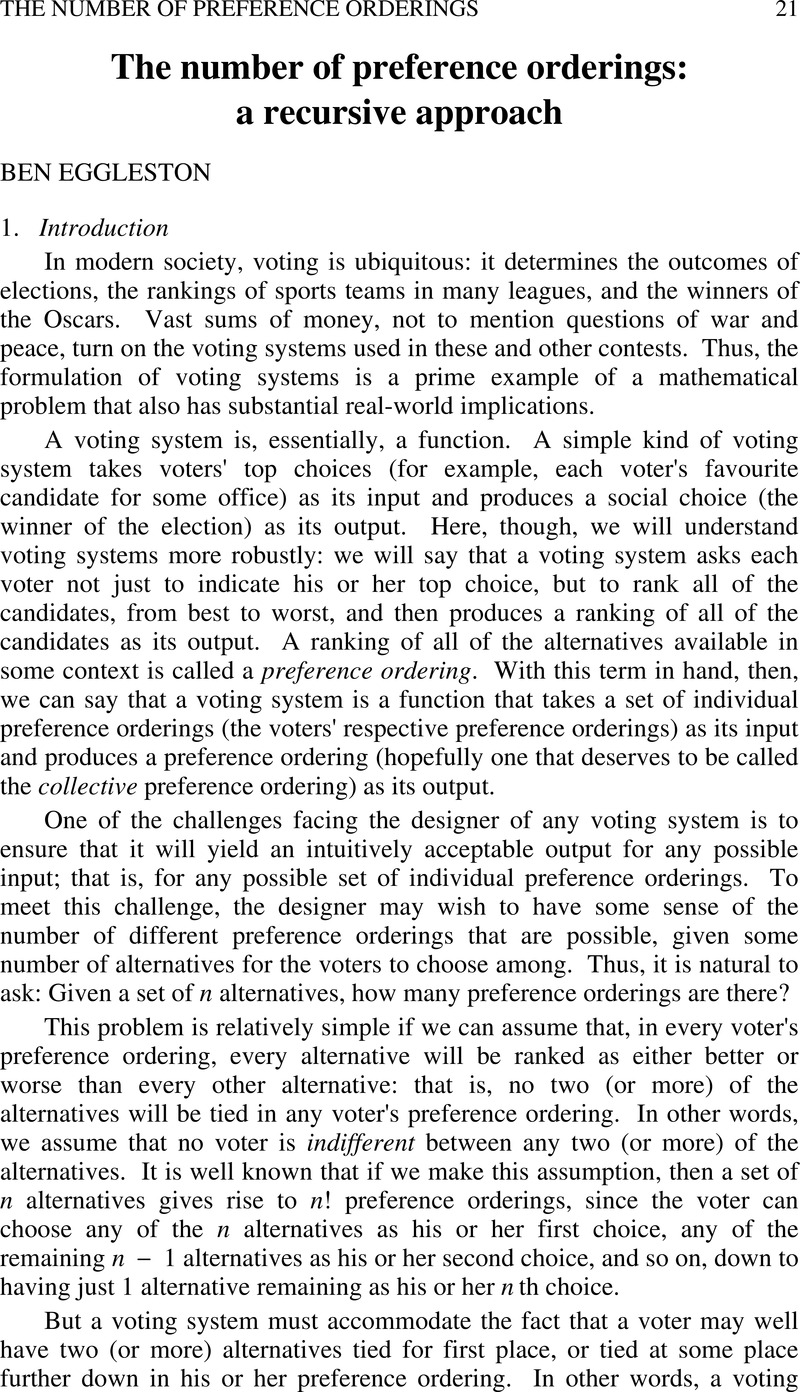No CrossRef data available.
Article contents
The number of preference orderings: a recursive approach
Published online by Cambridge University Press: 13 March 2015
Abstract
An abstract is not available for this content so a preview has been provided. Please use the Get access link above for information on how to access this content.

- Type
- Articles
- Information
- Copyright
- Copyright © Mathematical Association 2015
References
1.
Chandon, J. L., Lemaire, J., and Pouget, J., Dénombrement des quasi-ordres sur un ensemble fini, Mathématiques et Sciences Humaines
62 (1978) pp. 61–80.Google Scholar
2.
Riordan, J., An introduction to combinatorial analysis, John Wiley & Sons, Inc., New York (1958).Google Scholar
3.
Weisstein, E. W., Stirling number of the second kind, MathWorld, accessed December 2014 at http://mathworld.wolfram.com/StirlingNumberoftheSecondKind.html
Google Scholar
4.
Weisstein, E. W., Binomial coefficient, MathWorld, accessed December 2014 at http://mathworld.wolfram.com/BinomialCoefficient.html
Google Scholar
5.
Barthelemy, J. P., An asymptotic equivalent for the number of total preorders on a finite set, Discrete Mathematics
29 (1980) pp. 311–313.Google Scholar
6.
Bailey, R. W., The number of weak orderings of a finite set, Social Choice and Welfare
15 (1998) pp. 559–562.Google Scholar
7.
Sloane, N. J. A., Online encyclopedia of integer sequences, accessed December 2014 at http://weis.org/A000670
Google Scholar
8.
Aitken, A. C., A problem in combinations, Edinburgh Mathematical Notes
28 (1933) pp. xviii–xxiii.Google Scholar
9.
Comtet, L., Advanced combinatorics: the art of finite and infinite expansions (revised edition), D. Reidel Publishing Company, Dordrecht, Holland (1974).CrossRefGoogle Scholar
10.
Kreweras, G., Une dualité élémentaire souvent utile dans les problèmes combinatoires, Mathématiques et Sciences Humaines
3 (1963) pp. 31–41.Google Scholar


